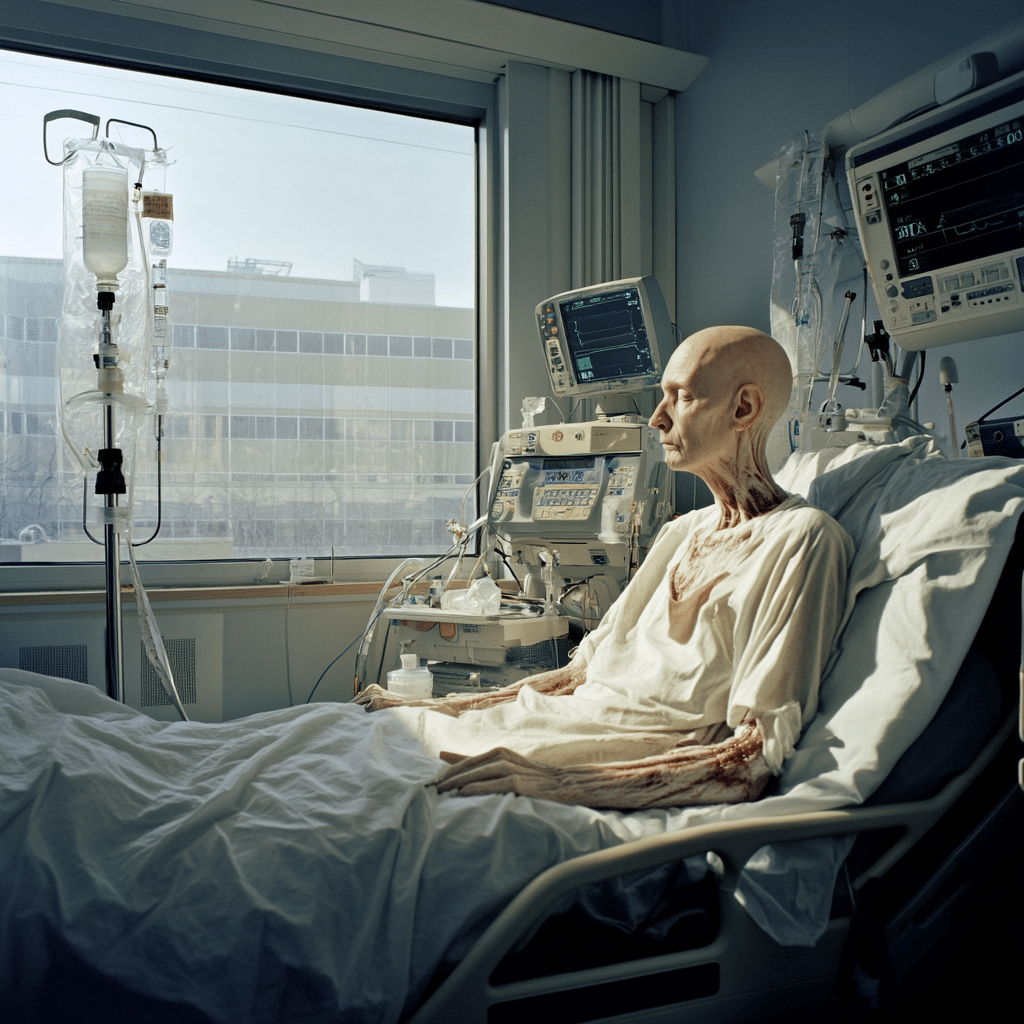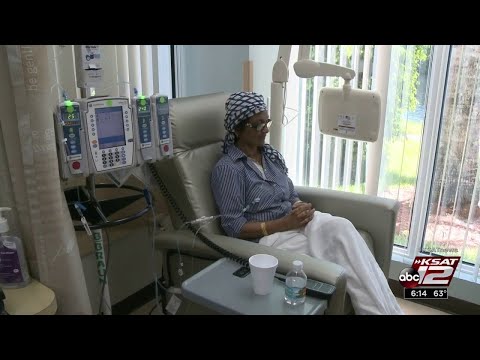Undergoing chemotherapy can feel like a weightlifting challenge that never ends, right? You push through one rep after another, but instead of getting stronger, you might find yourself feeling even worse. Each treatment is meant to fight the cancer that’s taking a toll on your life, but there are vital signs that your chemotherapy might be killing you instead. We’re here to highlight what to watch for, keeping in mind that understanding these warning signs can empower you on your journey. Stay vigilant and let’s get into the top seven signs chemo is killing you.

Top 7 Signs Chemo Is Killing You
Chemotherapy can be a tough road with many bumps along the way. Recognizing these seven signs could just be the key to taking control of your health.
1. Severe Fatigue and Exhaustion
Feeling tired during treatment is as common as flexing your biceps in the gym. But if you’re hit with a level of exhaustion that doesn’t budge with rest, it might be a red flag. Studies show that being worn out can stem from your body constantly battling cancer and the harsh effects of chemotherapy. You need to differentiate between normal tiredness and that overwhelming fatigue that stops you from even getting out of bed.
2. Unexplained Weight Loss
Losing weight unexpectedly can be alarming. If you’re shedding more than 5% of your body weight, it’s time to pay attention. It may signal that your chemotherapy is messing with your body’s ability to absorb nutrients. A study featured in the Journal of Nutritional Science pointed out that significant weight loss can hinder recovery, so it’s crucial to evaluate what’s going on and whether you’re dealing with any nutritional deficiencies.
3. Persistent Nausea and Vomiting
Nausea and vomiting often come hand in hand with chemotherapy. But if you’re battling relentless nausea that leads to constant vomiting, it’s time to reassess your treatment. Medications like Zofran can help tackle that queasy feeling, but failing to find relief can indicate that your treatment may be too intense. If nausea becomes a severe issue, reach out to your health provider for adjustments or new options—don’t just tough it out!
4. New or Worsening Infections
Chemotherapy can take a serious toll on your immune system, making you prone to infections. Experiencing frequent fevers, chills, or an unexpected feeling of malaise? Those could be signs that your treatment is compromising your immunity. Notify your healthcare team immediately; monitoring your blood counts may be necessary, and some patients may need supportive drugs like G-CSF (Granulocyte Colony-Stimulating Factor) to boost their defense.
5. Troubled Breathing or Chest Pain
Chest pain or difficulty breathing should never be brushed off—especially during chemotherapy. Some might blame these symptoms on anxiety, but they could indicate severe side effects or heart issues due to certain chemotherapy drugs, such as anthracyclines. Early intervention is crucial, so don’t hesitate to seek help; your health is your priority.
6. Cognitive Impairment
What’s commonly referred to as “chemo brain” affects many patients, manifesting as confusion or difficulty concentrating. Research from the National Cancer Institute reveals these cognitive effects can linger even after treatment’s over. If you notice these changes, talk to your healthcare providers about cognitive rehabilitation solutions that may help you regain clarity and mental agility.
7. Changes In Blood Counts
Regular blood tests are your best friend during chemotherapy. They help track your white and red blood cell counts. If tests show consistently low counts—especially white (neutropenia) or red blood cells (anemia)—this could indicate that chemotherapy is damaging your bone marrow. Such outcomes may require adjustments in your medication or nutritional support like Erythropoietin.

Other Health Concerns Related to Treatment
While you soldier on through your chemotherapy journey, a lot crosses your mind. Maybe you’ve heard the chitchat about caffeine—does coffee stunt your growth? Relax, that’s not really the case. However, it’s still important to consume caffeine moderately while undergoing treatment, as too much could add stress to an already fatigued body.
Now, let’s chat about antibiotics. Patients often wonder, do antibiotics make you tired? Well, some antibiotics may indeed induce fatigue, complicating an already tough road. Prolonged use of these medications can lead to other issues, like gut problems, so it’s wise to communicate any symptoms you experience to your healthcare provider.

Addressing Nausea and Sleep Concerns
Searching for solutions to alleviate nausea? Consider alternative remedies like ginger, acupressure, and mindfulness practices—they’ve gained popularity for managing nausea during treatment. And if you’re pondering does magnesium help you sleep? The answer is yes; magnesium can enhance sleep quality and ease anxiety, potentially providing relief for chemotherapy patients grappling with insomnia.

Managing the Road Ahead
Chemotherapy is undeniably challenging, and knowing when your treatment might be causing harm is critical. Keep your eyes peeled for those warning signs that could indicate your treatment is taking a negative turn. Staying proactive about your health, maintaining open communication with your healthcare team, and exploring relief options will make a difference in your recovery journey.
You’re not alone on this path. Support networks, from local cancer support groups to online forums, can be invaluable. Always remember, knowledge is power! By staying informed and proactive, you give yourself a fighting chance for the recovery you truly deserve. Together, let’s take steps towards a brighter future—because you owe it to yourself to get back to being the best version of you.
Stay strong, stay motivated, and let’s fight cancer the right way!

Signs Chemo Is Killing You
When undergoing chemotherapy, it’s only natural to keep an eye out for side effects. So, what exactly are the signs chemo is killing you? Recognizing these symptoms can play a critical role in managing your health under such intense treatment. One major red flag is persistent nausea or vomiting that feels beyond the ordinary. If it gets worse rather than better, that could signal that your body isn’t handling the treatment well. Alongside this, drastic changes in appetite might mean your body is struggling; it’s a good idea to reach out to your healthcare provider. After all, nobody wants to feel like they’re desiccated, withering away instead of healing.
Another sign to watch for is significant fatigue. We all know you’ll feel tired during chemo, but if you can barely lift your head off the pillow, it may be time to check in with your doctor. This level of exhaustion can be a clue that your body is taking a beating. Plus, frequent infections could signal that chemotherapy is suppressing your immune system more than expected. If you’re feeling addicted in Spanish to your bed and unable to follow your normal routine, that’s a message from your body to pay attention.
Moreover, pay close attention to skin changes. Dry or peeling skin and mouth sores can indicate chemotherapy is getting the upper hand, making you more vulnerable. You might wonder, Is aspirin an NSAID? While it’s a common pain reliever, know that whether or not it’s right for you during treatment is something you should discuss with your doctor. Also, if you experience muscle pains or weakness, particularly in areas like the gluteus minimus, it could be a telling sign. The fine balance your body needs during such a taxing process can sometimes feel like walking on a tightrope.
Lastly, don’t overlook emotional shifts that can hit hard. Anxiety or depression can sneak up on anyone, especially when you’re facing such challenges. The stress of understanding what feels “normal” versus what doesn’t can be overwhelming—whether it’s figuring out What Does fetus mean in Latin or managing your health. So, when you notice multiple signs chemo is killing you, be proactive. Share your experiences and connect with your healthcare team. After all, it’s crucial to advocate for your wellbeing, just as you might shop around for insurance And credit scores Quotes to make sure you’re covered. Recognizing these signs is the first step toward being your own health advocate, keeping you on the road to recovery.



























